Film director Randall Miller (Bottle Shock), along with Jody Savin and Jay Sedrish, the producers of the ill-fated Gregg Allman biopic, Midnight Rider, have been indicted on charges of involuntary manslaughter and criminal trespass, the Hollywood Reporter and other sources reported Thursday morning. The charges were filed in a superior court in the state of Georgia, where a February 20 accident killed camera assistant Sarah Jones.
The 27-year-old Jones’ death occurred when a freight train unexpectedly rolled through a scene being staged on railroad tracks in the small town of Doctortown Landing. Her death, which became a cause celebre among Hollywood safety activists, threw a spotlight on the dangers faced by below-the-line crew members as production companies large and small have taken shortcuts to keep down costs. With producers – particularly those involved in reality TV shows –increasingly adopting an accidents-will-happen attitude toward the safety of their crews,

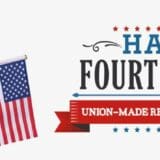
Our friends at Labor 411 continue to offer ways to celebrate holidays and support good American jobs at the same time. This week, of course, the 411 folks are highlighting the Fourth of July. They begin with Old Glory itself – noting that of all the flag versions (foreign and domestic) sold in America, you can’t do better than ones produced by the union workers of Annin Flagmakers (United Food and Commercial Workers) or Artflag (Workers United).
Doubling down on the red, white and blue spirit, Labor 411 suggests stocking up on like-colored edibles, quaffables and utensils, including:
Red: Solo Cups, Red Vines, Coca-Cola, Wine (C.K. Mondavi, Gallo Estate, Turning Leaf), Salsa (Old El Paso, Tostitos, Pace)
White: Popcorn (Act II, Orville Redenbacher, Smartfood), Domino Sugar, Chicken (Foster Farms, Banquet, Tyson), Milk (Alta Dena, Darigold, Horizon)
Blue: Pepsi,
» Read more about: Flagonomics — Supporting Good Jobs With Your Fourth of July Dollars »
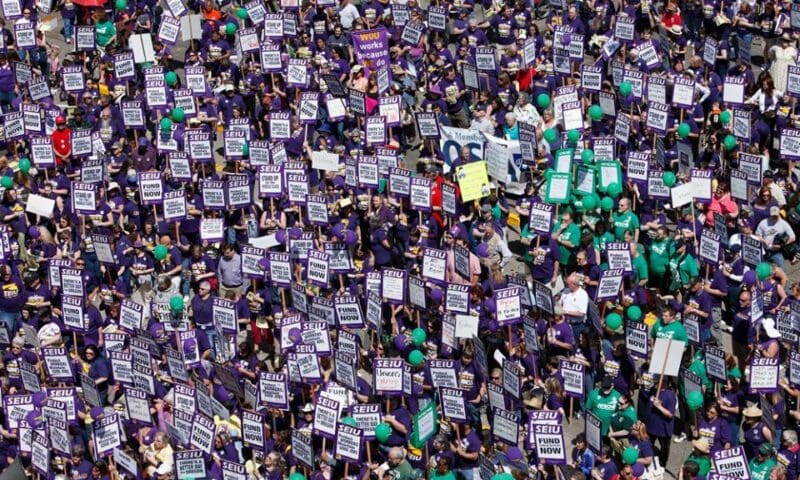

In Harris v. Quinn, the Supreme Court held by a 5-4 margin that an “agency shop” requirement—under which unionized public employees must pay their fair share of the costs of negotiating and administering a collective-bargaining agreement whose benefits they enjoy—may not be imposed on homecare workers who are (in the conservative majority’s view) only tenuously employed by the State of Illinois. Doing so, the conservatives held, violates the First Amendment.
The decision creates real obstacles for homecare workers in Illinois, California and other states who wish to have well-funded, effective unions representing them (and who don’t want to have their colleagues free-ride on the dues they pay to support such unions). This was a serious blow for homecare workers, but the obstacles are ones that can be overcome.
The bigger story of Harris v. Quinn is what didn’t happen: the conservative justices did not end fair-share fee arrangements altogether for public-sector workers.
» Read more about: Why Harris v. Quinn Is No Sweeping Victory for Conservatives »


Technology is radically transforming the ways we work and the ways we learn, nowhere more so than in the world of online education. But will the shape of the future be drawn solely by corporate leaders in the technology industry, or will parents, students and teachers have a voice in what tomorrow’s digital classroom looks like?
As the online education sector grows, the public’s stake in that question becomes ever more paramount. One way in which virtual teachers are seeking to ensure that the pursuit of profits does not come at the expense of students, parents and educators is by organizing to join the California Teachers Association. (Disclosure: CTA is a financial supporter of Capital & Main).
Below is the first in our series of posts written by teachers at the California Virtual Academies (CAVA), an affiliate of K12, a for-profit,
» Read more about: Lesson Plan: Protecting Students In Online Schools »
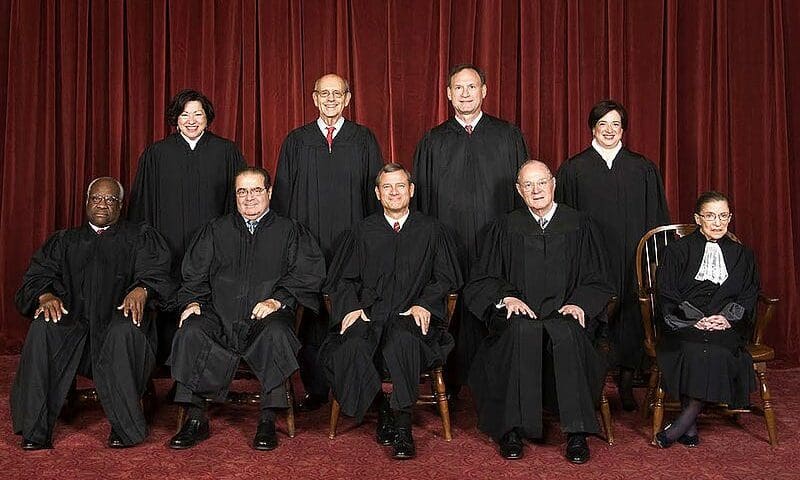

(Editor’s Note: Richard Kirsch’s feature first appeared on the Roosevelt Institute’s Next New Deal blog, as well as on Huffington Post. It is cross-posted here with the author’s permission.)
A huge sigh of relief mixed with curses. That’s my reaction to the Supreme Court’s decision today to block home care workers in Illinois from being required to pay union dues, while continuing to allow public employee unions to collect dues from all the workers they represent. The decision in Harris v. Quinn blocks the right-wing assault against one of the most important pillars of progressive infrastructure, public employee unions, but will add to the challenge of raising wages and benefits in the surging low-wage workforce.
First, some background on the case: As part of the right’s ongoing attack on working people, a right-wing legal group recruited a handful of home care workers in Illinois to challenge the state’s requirement that the workers pay union dues.
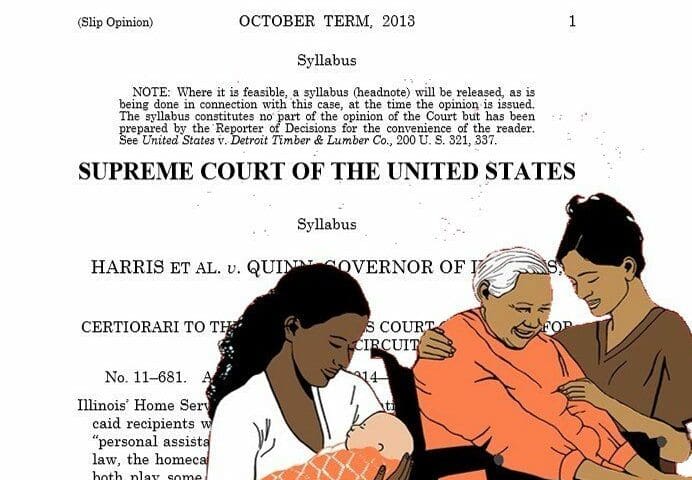

Monday’s U.S. Supreme Court ruling in Harris v. Quinn, which settled an Illinois lawsuit filed by the National Right to Work Foundation, did not strike down the ability of all public employee unions to collect fees from workers. It did, however, appear to create a new class of worker – the “partial public employee” – that could seriously hinder those unions’ organizing efforts.
While it remains to be seen exactly how the court’s decision will play out in the months to come, California in-home caregivers and organizations that represent them and their clients vowed today to carry on with their work. On a teleconference held within hours of the court’s ruling, representatives of unions and care recipients spoke of the importance of unions in the transmission of home health care.
“Homecare workers are a classic example of a workforce that needs to bargain collectively,” said Gary Passmore,
» Read more about: After the Harris Ruling: Home-Care Workers Will Continue to Organize »


In a closely watched decision, the U.S. Supreme Court this morning ruled that home-care workers cannot be compelled to pay fees to the unions that represent them. The ruling in the Harris v. Quinn case was narrow in its scope — there had been speculation that a majority of the justices could throw out the high court’s 1977 Abood decision that had authorized all public-sector unions to collect dues from workers for whom the unions negotiated contracts.
According to the Los Angeles Times:
In a 5-4 ruling written [by] Justice Samuel A. Alito Jr., the court said these employees, some of whom care for their disabled children at home, have a constitutional right not to support a union they oppose. The decision is a victory for the National Right to Work Foundation, which took up the cause of several mothers who objected to paying union fees.


Imagine walking outside and breathing fresh air instead of today’s exhaust. Imagine taking your lunch scraps to a compost bin while a modern trash truck makes its way down your street. And then imagine the convenience of tossing your recyclables into a blue bin, and knowing that this has lowered your trash bill while helping the environment.
Los Angeles is on track to becoming a national environmental leader with its landmark Zero Waste LA system, which covers waste and recycling collection for apartments and businesses. In April, the Zero Waste LA policy was adopted by Los Angeles’ City Council. The system will carve out 11 exclusive waste franchise zones that will reduce truck traffic and increase recycling and composting – with three of the zones designed to incubate small waste haulers’ growing businesses and protecting long-term competition.
The next step — the Request for Proposals, or RFP — was just approved by the Board of Public Works on June 11,
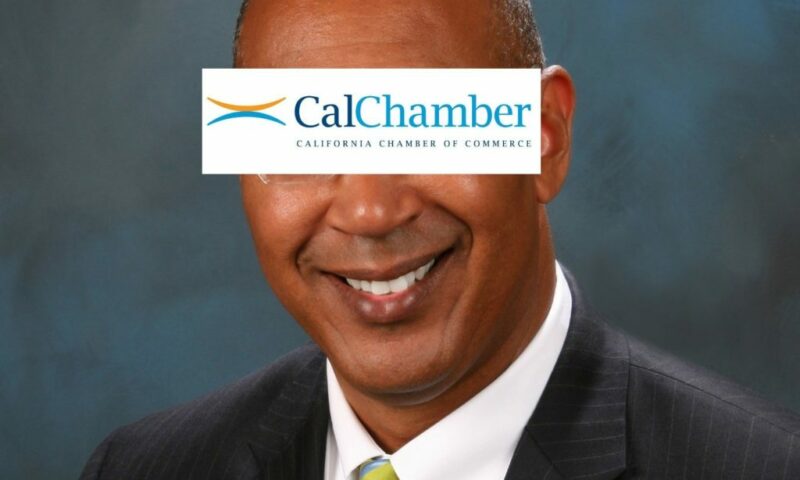
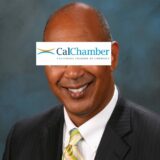
On Wednesday, Assemblymember Chris Holden (D-Pasadena) thwarted an effort to raise California’s minimum wage. By abstaining, he helped kill a proposal to raise the wage to $13 an hour in 2017.
Many of Holden’s constituents are wondering: Why? Is Holden one of those “corporate Democrats” that Pulitzer Prize-winning journalist Gary Cohn has recently exposed in eye-opening reports? Although Holden often supports pro-union bills, he typically looks to find pro-business compromises to secure his “yes” vote on labor-oriented legislation. His abstention on the minimum wage bill was a “big disappointment,” according to a key union activist in Sacramento.
Across the country, there’s a growing movement to address the nation’s widening economic inequality. One key part of this movement is the accelerating wave of cities and states seeking to raise the minimum wage. President Obama has proposed raising the federal minimum wage to $10.10 an hour.


“In states and cities across the country, lawmakers are expressing new skepticism about privatization, imposing new conditions on government contracting, and demanding more oversight.”
— The Atlantic, 4/23/14
“Is privatization a magic wand? Is it always going to come in and save you money? No. You have to do this well. You have to do your due diligence. You have to do a good contract and then you have to monitor and enforce that contract.”
— Leonard Gilroy, Reason Foundation Director of Government Reform
“The ideological fervor for privatization has ebbed.”
— John D. Donahue, privatization expert, Harvard’s Kennedy School of Government
Statements like these would have been unthinkable just a few years ago. For decades, runaway outsourcing of public services and assets enjoyed nearly nonstop momentum at the state and local levels. But when even the Reason Foundation is agreeing with us about responsible contracting,
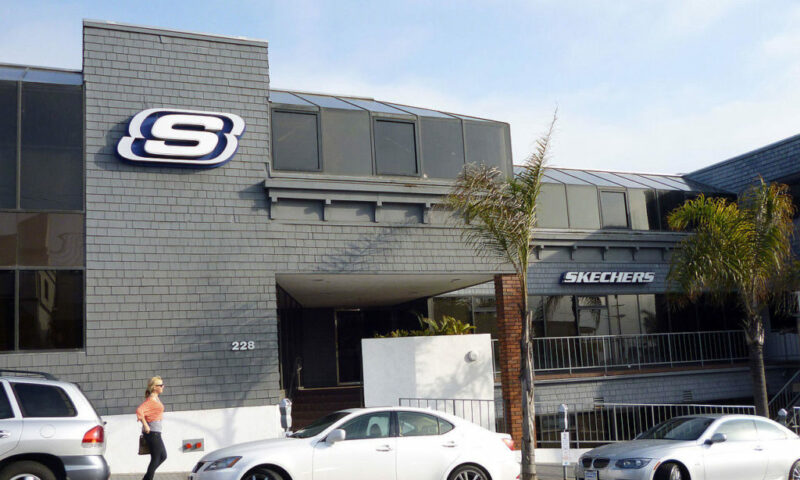

Skechers, one of America’s largest footwear companies, can run, but it can’t hide.
A report released Wednesday by the Los Angeles Alliance for a New Economy (LAANE), Out of Step: How Skechers Hurts Its California Supply Chain Workers, exposes the company’s troublesome labor practices. It is not a pretty sight.
The report reveals the mistreatment of the workers who deliver Skechers’ products — primarily shoes, apparel and luggage — from ports to warehouses to retail stores around the country and around the world. In doing so, Out of Step also exposes the huge gap between Skechers’ carefully crafted image as a hip retailer, which has led it to become a $1.8-billion corporation, and the reality of a company for whom truck drivers and warehouse workers labor under harsh, stressful, and exploitative conditions.
Skechers recently overtook New Balance to become the fifth-largest athletic-footwear brand in the country.


There was a time, not all that long ago, when a supermarket job was seen as a turnstile to middle-class security, especially if the job was in a unit of the old Retail Clerks Union. Today, however, even that seemingly bedrock bridge to the American Dream is vanishing into thin air as massive retail hypermarkets and nonunion grocery stores knock down wages and job benefits. A survey released this month confirms the acceleration of this trend and identifies even more problems that lie ahead for California’s grocery workers.
Shelved: How Wages and Working Conditions for California’s Food Retail Workers Have Declined as the Industry Has Thrived, commissioned by the Retail Clerk’s successor, the United Food and Commercial Workers union, was conducted by Saru Jayaraman of the University of California, Berkeley’s Food Labor Research Center. Her work here reveals a familiar pattern present among nearly all U.S.
» Read more about: Survey: Grocery Workers’ Vanishing Horizons »


The U.S. prison population has grown more than 700 percent between 1970 and 2009. We’re locking people up left and right, including thousands of non-violent immigrants whose only crime is crossing the border without documentation. They are now trapped in private prisons with no voice.
The American Civil Liberties Union (ACLU) has just released the jaw-dropping findings of its investigation into the shadowy system of privately run Criminal Alien Requirement (CAR) prisons used to hold immigrants. Here, thousands of immigrants serve lengthy prison sentences where they are exposed to abysmal conditions.
Private prisons have a lot to gain from the incarceration of immigrants. Their business model revolves around imprisoning people for profits, siphoning tax dollars away from public goods and into shareholders’ pockets. For locked-up immigrants, however, it means being isolated from family and the outside world.
Until ACLU’s blockbuster investigation, CAR facilities have operated in the shadows,
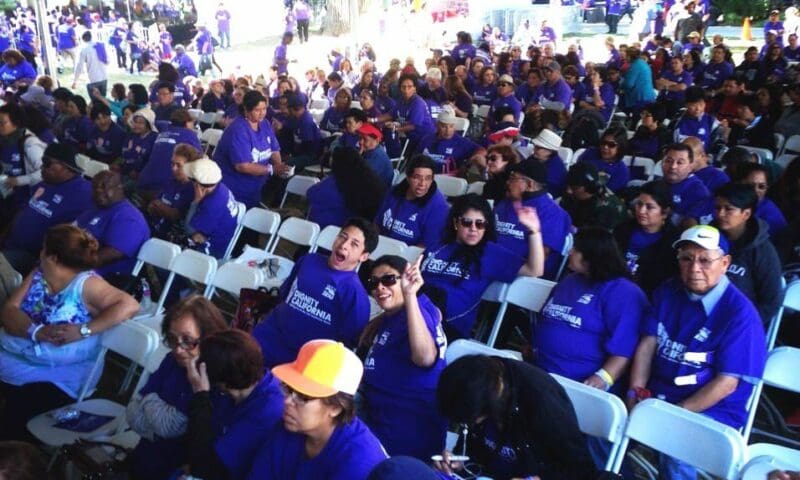

If proof is needed that good things happen to people who don’t just wait but act, look no further than Governor Jerry Brown’s agreement, this past week, to allow in-home caregivers to receive overtime pay. Last year his administration had claimed that such overtime, which the federal government had mandated for in-home caregivers, would pose a prohibitive financial burden for California. Then, in January, the governor unveiled a 2014-15 budget that explicitly capped caregivers’ hours at 40 per week for the program, which is administered by the state’s In-Home Supportive Services (IHSS).
Not only would low-income seniors and Californians with disabilities who require in-home care have to hire additional workers to meet their needs, but the cap also struck deep at the livelihood of many caregivers by taking away from them a substantial number of work hours. A January Capital & Main investigative story, written by Gary Cohn,
» Read more about: Reversal of Misfortune: Caregivers Win Overtime »
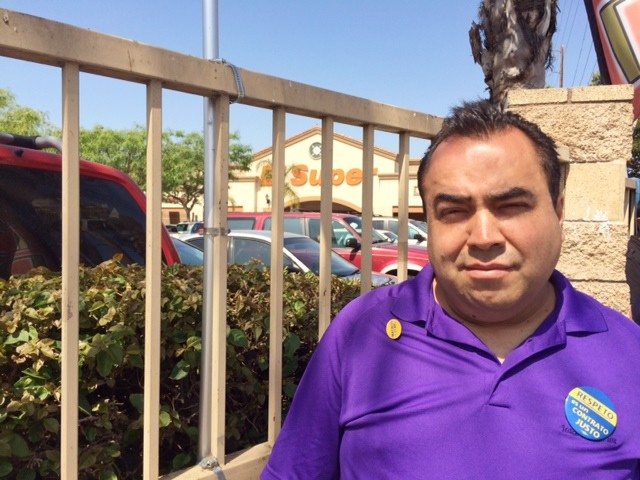

To the sources of airborne diseases brought in from schools, hospitals and airliners, add a new threat: Thousands of low-paid food handlers who are compelled by economic circumstances to remain on the job even when they are ill. According to the Centers for Disease Control, “Infected food workers cause about 70 percent of reported norovirus outbreaks from contaminated food.” The CDC’s recommendations for containment include, “Requiring sick food workers to stay home, and considering use of paid sick leave and on-call staffing, to support compliance.”
Yet many of these workers have no paid sick leave and, in some cases, have claimed they risk losing their jobs if they stay home with the flu or a cold. From Orange County to South and East Los Angeles, however, hundreds of workers at El Super, which is the largest grocery chain in California’s exploding Latino food market, are demanding their employer provide sick leave pay.
» Read more about: El Super Grocery Workers Fight for Paid Sick Leave »


Ever wonder how the reality behind splashy headlines about jobs really stacks up? I promise you a jolt of hope from reading a new study called Work for All the Crafts: Restoring the Union Depot in St. Paul.
The study was released June 10 by Jobs to Move America coalition leader Good Jobs First, a nonprofit, nonpartisan group that promotes smart growth for working families. The study shows that the recently completed restoration of the Union Depot — an historic transit hub in St. Paul, Minnesota that is pictured above — employed about 2,000 workers with special skills in 13 different building and construction crafts.
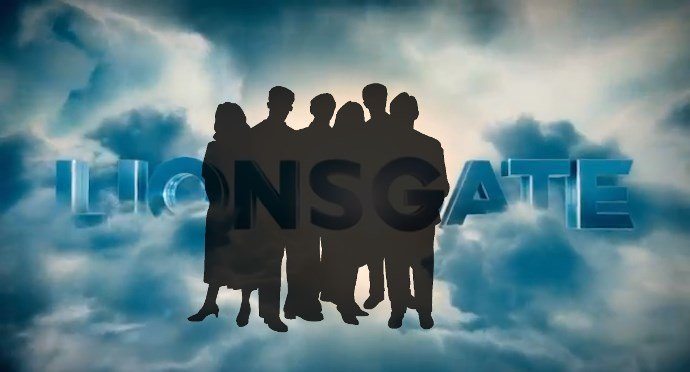

When the car in front of you gets pulled over for speeding and you’re going just as fast, you tend to slow down.
Judging from a story in last Friday’s L.A. Times, this sort of common-sense approach may not be so common at the Santa Monica headquarters of the film and TV studio, Lionsgate. According to the Times’ reporting, Lionsgate is the last major studio to retain its unpaid internship program after the rest of the entertainment industry has started to pay interns.
The industry’s problems began in 2011, when interns working on the film Black Swan for Fox Searchlight filed a class action suit against the company, claiming violations of federal labor law. (Companies are not allowed to use interns as a source of free labor as viewed by the U.S. Department of Labor.) Following the Black Swan suit,
» Read more about: Lionsgate Raises Nickel-and-Diming to an Art »
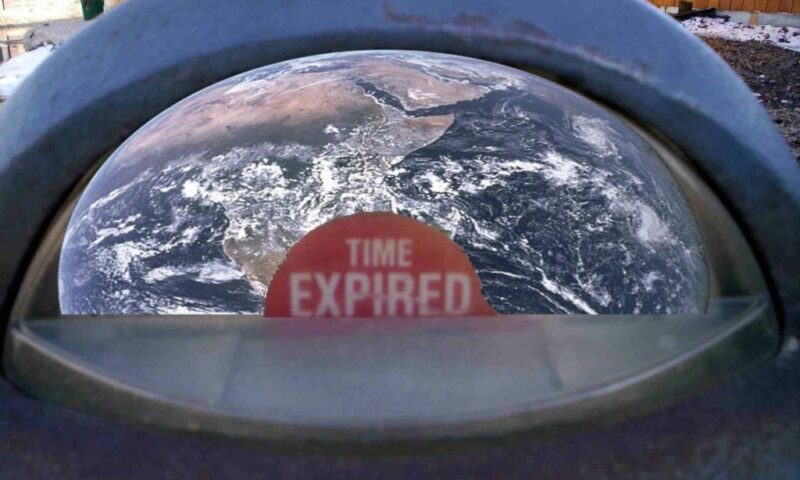

We already know that reckless outsourcing has negative impacts on the local community. But did you know it can also contribute to climate change? In a new op-ed I just published in Next City, Roosevelt University Professor Stephanie Farmer and I explore how poorly structured public-private partnership (P3) deals threaten long-term environmental sustainability.
To do it, we return to an old standby: Chicago’s parking meter debacle. Plans to build rapid bus lines and bike lanes have been put on hold in the Windy City because these projects would “compete” with the Morgan Stanley-backed corporate consortium that now runs the city’s 36,000 parking meters. And like so many other long-term outsourcing contracts, competition is a big no-no.
Chicago taxpayers would have to reimburse the consortium for lost revenue if they build projects that reduce traffic and carbon emissions – like bike lanes and bus rapid transit lines.


You have to be living in a cave to miss the brouhaha about French economist Thomas Piketty’s blockbuster Capital in the 21st Century. His book documents the widening gulf between the rich and the rest of us by examining tax rolls and other arcane data from before the last century in this country and Europe. He demonstrates conclusively that taxes on work are higher than taxes on wealth, playing a key role in creating and maintaining the gap.
That disparity was underscored again this month when the Los Angeles Business Journal published its list of the 50 richest in our region. According to the Journal the “aggregate net worth, adjusted for inflation” of the wealthiest half-a-hundred increased by $29 billion during the last five years. That includes four years of the Great Recession followed by disturbingly slow recovery, when huge unemployment rates kept a lot of people from sleeping.
» Read more about: Deliberately Unequal: Policy Choices at Inequality’s Roots »
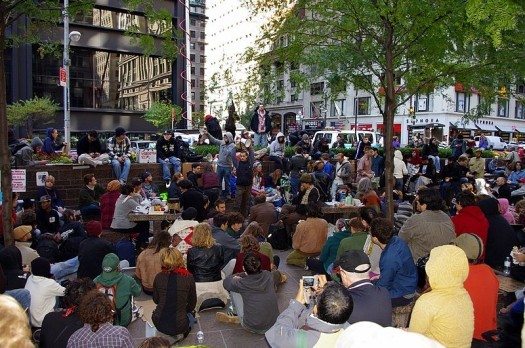

An idea that only a year ago appeared both radical and impractical has become a reality. On Monday, Seattle struck a blow against rising inequality when its City Council unanimously adopted a citywide minimum wage of $15 an hour, the highest in the nation.
This dramatic change in public policy is partly the result of changes brought about by last November’s Seattle municipal elections. But it is also the consequence of years of activism in Seattle and around the country. Now that Seattle has established a new standard, the pace of change is likely to accelerate quickly as activists and politicians elsewhere seek to capture the momentum. Five years from now, Americans may look back at this remarkable victory and wonder what all the fuss was about.
Seattle now joins a growing list of cities—including San Francisco, Santa Fe, Albuquerque, San Jose,
» Read more about: How Seattle’s $15 Minimum Wage Victory Began in Zuccotti Park »